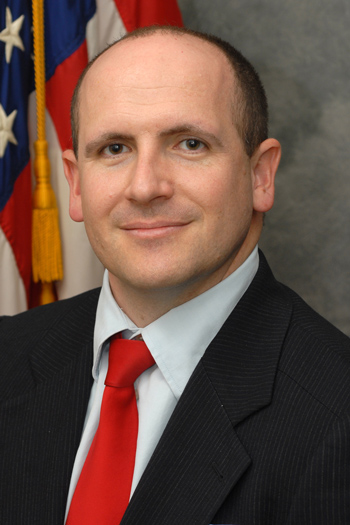For Consumers
Fabricant: Supplement Safety is Priority
 |
Daniel Fabricant, Ph.D, was named director of FDA’s Division of Dietary Supplement Programs in February 2011. |
 Get Consumer Updates by E-mail
Get Consumer Updates by E-mail
 Share copies of this article (557 KB)
Share copies of this article (557 KB)
More on Nutrition and Healthy Diets
Daniel Fabricant, Ph.D., came to the Food and Drug Administration in February as director of the agency’s Division of Dietary Supplement Programs. In this job, he advises FDA on policy issues involving dietary supplements, including the safety of new dietary ingredients, good manufacturing practices, and problems reported by consumers. He’s also responsible for developing enforcement priorities and interpretations of the Dietary Supplement Health and Education Act in order to ensure that dietary supplements are safe, meet quality standards, and are accurately labeled.
Before coming to FDA, Fabricant was active in the dietary supplement industry, serving most recently as vice president of the Natural Products Association—the largest nonprofit in the United States that’s dedicated to the makers and distributors of natural products. While in that role, he was named to a consumer product advisory committee for the Department of Commerce and U.S. Trade Representative. He was also instrumental in winning a National Institutes of Health contract for the National Products Association’s work on a nationwide label database prototype for dietary supplements.
Fabricant carried his interest in natural products into the classroom earning a Ph.D. in Pharmacognosy from the University of Illinois at Chicago, where he has served as an adjunct professor in the Department of Medicinal Chemistry and Pharmacognosy since 2009. Pharmacognosy is the study of drugs derived from natural sources (plants and animals). He has also written numerous peer-reviewed articles for scientific journals and serves on a number of editorial boards.
Questions and Answers:
Before coming to FDA, you were a leader in the dietary supplement industry. How will your background—which includes serving as interim CEO and executive director of the Natural Products Association—help you in your new position as FDA’s director of the Division of Dietary Supplements?
In my former position, I came to know the stakeholders—trade organizations, manufacturers, distributors, and consumers—and understand their roles. This will make it easier to communicate FDA’s requirements and expectations to the industry and, in turn, promote understanding and compliance with rules that FDA has set up to protect consumers and the supply chain.
What are your top goals—short-term and long-term—for the Division of Dietary Supplements?
My goal is to put a robust safety program into practice. The Dietary Supplement Health and Education Act (DSHEA) was passed, but there are parts of the law that still need to be fully implemented—like creating a compliance plan for new dietary ingredients and furthering the relatively new “good manufacturing practice” regulation. Most dietary supplement makers—as many as 80 percent—are medium and small businesses. Some of them haven’t developed methods that make them compliant with the rules on good manufacturing practices. Additionally, other firms have deliberately misled consumers about the ingredients in their products. Addressing these issues is high on my list of priorities.
The largest threat and a very big priority is to crack down on spiked “life style” products by examining those that are on the market and contain weight loss or sexual enhancement drugs. FDA learns about dangerous products from reports of problems filed with the agency, basic intelligence gathering, and by looking at how the products are marketed. For instance, a number of the spiked sexual enhancement products claim to work within 20 to 45 minutes. When we see a product that makes claims above and beyond what a dietary supplement might do—above supporting health—and within a time frame of a few minutes, it tips us off that we might have a spiked product.
What impact does the Food Safety Modernization Act have on dietary supplements?
The complete effects of the new food safety law haven’t been felt, yet, because the regulations are still being developed, but new registration requirements are being put into place. While finished dietary supplements were specifically exempted from the new preventive control regulations, new dietary ingredients were not.
We have already published “new dietary ingredient” guidelines. A new dietary ingredient is one that wasn’t marketed in the U.S. before Oct. 15, 1994, when DSHEA was enacted.
How can consumers ensure that the dietary supplements they take are safe?
Consumers can look up products on FDA’s website to see if any warning letters have gone out. They can also get the latest news on tainted products by using FDA’s “widget” and “RSS feed.” Both of these online tools contain alerts, health information, and FDA actions on tainted products marketed as dietary supplements.
Consumers should be leery of anything that claims to work in a short amount of time or makes statements that sound too good to be true. Visit FDA’s Office of Regulatory Affairs electronic reading room to see if the agency has taken action against a company.
This article appears on FDA's Consumer Updates page, which features the latest on all FDA-regulated products.








